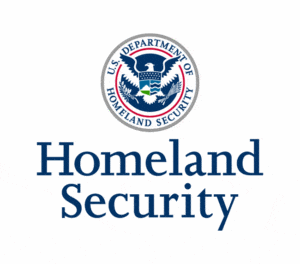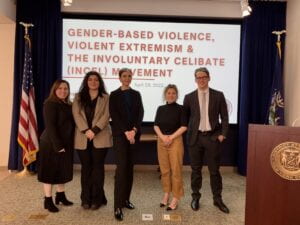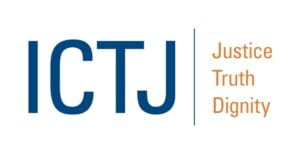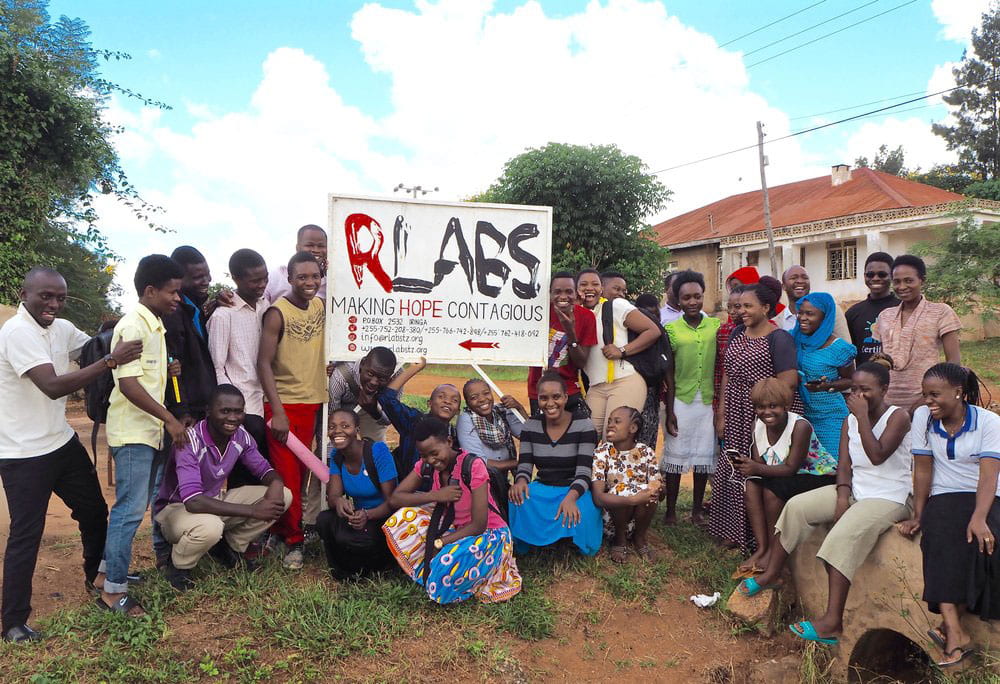Consulting practicums place students in real world situations, working under faculty supervision for the United Nations, the U.S. State Department, non-governmental organizations, and private firms on projects of immediate importance. These practicums exist across our eight concentrations, are full credit bearing, and have become a key element in our commitment to bridge classroom learning with practical applications.
Note on applying to Practicums: You may apply to multiple practicums, but you will only be able to participate in one per semester. If you plan to apply to more than one, you must indicate your preference on each of the application forms. Please keep in mind that the application process is competitive as there are a limited number of spaces in each practicum. If selected to participate, you may not get your top choice.
MSGA and MSGSCC Practicums: MSGSCC students can be admitted to MSGA Practicums only upon approval. Please see below for details on how to apply. Email graduate.global.affairs@nyu.edu with any questions.
Practicums by Semester (APPLY BY CLICKING ON LINK FOR CURRENT SEMESTER): Fall 2024, Spring 2024, Fall 2023, Spring 2023, Fall 2022, Spring 2022, Fall 2021
Practicum Partner: Apne Aap
 Founded in 2002 by Ruchira Gupta, Apne Aap Worldwide is among the world’s most influential anti-human trafficking organizations. It empowers marginalized girls and women to work collectively to break away from the sex industry and also fights for policy change in countries around the world to curb the demand for purchased sex. Since 2002, Apne Aap has set up 150 self-empowerment groups (SEGs) in brothels, red-light districts, slums and villages. These groups are at the core of the organization’s community-centered solution to end sex trafficking. In the process, Apne Aap has supported the transformation of the most marginalized women into leaders who can change their own fate and those of their peers. On the policy side, Apne Aap has successfully lobbied for the United Nations anti-trafficking fund for survivors. Established in 2010, the fund now disburses grants to organizations providing services to victims of trafficking. Apne Aap representatives regularly deliver speeches at the United Nations and in legislatures around the world, urging members to change laws to put an end to trafficking. As a result, several countries now have policies to punish buyers of sex rather than trafficked women
Founded in 2002 by Ruchira Gupta, Apne Aap Worldwide is among the world’s most influential anti-human trafficking organizations. It empowers marginalized girls and women to work collectively to break away from the sex industry and also fights for policy change in countries around the world to curb the demand for purchased sex. Since 2002, Apne Aap has set up 150 self-empowerment groups (SEGs) in brothels, red-light districts, slums and villages. These groups are at the core of the organization’s community-centered solution to end sex trafficking. In the process, Apne Aap has supported the transformation of the most marginalized women into leaders who can change their own fate and those of their peers. On the policy side, Apne Aap has successfully lobbied for the United Nations anti-trafficking fund for survivors. Established in 2010, the fund now disburses grants to organizations providing services to victims of trafficking. Apne Aap representatives regularly deliver speeches at the United Nations and in legislatures around the world, urging members to change laws to put an end to trafficking. As a result, several countries now have policies to punish buyers of sex rather than trafficked women
In this practicum, students will work closely with Apne Aap founder, Ruchira Gupta, her dedicated team in New York, and Professor Sylvia Maier on three projects, each based on desk research and interviews with stakeholders, and directly connected to the advocacy work of Apne Aap: (1) Conduct research and prepare a white paper on the relationship between money laundering, cybercrime and sex trafficking that can be presented to banks with suggested guidelines or codes of conduct; (2) Conduct research and prepare a white paper on the role of AI in human trafficking; (3) Prepare an assessment of the type and state of commitments to combating human trafficking as well as the actual activities by private sector companies, such as Delta and Amazon, with a view of including trafficking awareness in global DEI Initiatives.
We invite applications from students from all concentrations. Requirements: a passion for the field, strong analytic and writing skills; a familiarity with laws on human trafficking, data visualization programs, such as Canva and Excel, and how to do interviews, is helpful but not required. Students must be available for three short Zoom project preparatory meetings over the summer. This Practicum counts towards the G, IL and DH Concentrations.
Practicum Partner: Counter Terrorism Executive Directorate (CTED) of the United Nations
For the Counter Terrorism Executive Directorate CTED) of the United Nations, CGA has collaborated on 16 projects over the last 8 years, on a range of terrorism and counter terrorism topics. They include ISIS use of social media to recruit and incite; how UN member states deal with terrorist fighters returning from Iraq and Syria; how the UN can work with the private sector and academic institutions to track emerging terrorist threats; the role of technology in countering terrorist threats; and currently, the rise of right-wing terrorism and member state responses.
We have written papers, held workshops and conferences, delivered briefings, and built processes for collaborating with non-UN experts, firms and state political actors. These deliverables have shaped UN Security Council resolutions, made their way into CTED briefings for member states and other UN bodies, and helped CTED keep abreast of emerging trends and disseminate these trend reports to their global network of experts.
Practicum Partner: The Milken Institute
Mapping Financial Ecosystems in The Age of Cryptocurrencies and Digital Assets
In this consulting practicum, students will work closely with the Milken Institute to explore the potential that decentralized finance and cryptocurrencies have for developing countries. The students did research on the use of cryptocurrencies in seven countries, including Kenya, the Central African Republic, Nigeria, Brazil, Venezuela, the Philippines, and Singapore. While cryptocurrencies have predominantly been an investment instrument in most high-income countries, many poor and developing countries have adopted the use of Bitcoins, stablecoins, and other tokens to solve practical problems. The collaboration with the Milken Institute, which began in September 2023, were meant to provide students with an understanding of the role that monetary policies play in development processes and how the introduction of cryptocurrencies offer solutions to some of the problems that are linked to the money issues by national governments.
Practicum Partner: Institute for Healing of Memories
Project: Building Sustainable Peace
 In close cooperation with IHOM’s Executive Director, students conduct research and analysis of current and past peacebuilding and reconciliation processes and practices in IHOM’s current focus countries—Bosnia Herzegovina, DRC, Nepal, and the US—specific to current IHOM projects that focus on trauma healing, capacity-building, women’s self-empowerment, child soldiers, adverse childhood experiences, sexual violence in the US military, and the ethnic/religious composition of a country’s political institutions.
In close cooperation with IHOM’s Executive Director, students conduct research and analysis of current and past peacebuilding and reconciliation processes and practices in IHOM’s current focus countries—Bosnia Herzegovina, DRC, Nepal, and the US—specific to current IHOM projects that focus on trauma healing, capacity-building, women’s self-empowerment, child soldiers, adverse childhood experiences, sexual violence in the US military, and the ethnic/religious composition of a country’s political institutions.
Deliverables were determined by our client’s needs, principally the objective to facilitate effective trauma healing and healing of memory workshops, and included three reference/background chapters for IHOM workshop facilitators, and two workshop intake surveys for women survivors of sexual violence in the DRC, in partnership with the DRC-based NGO, Heal Africa.
Practicum Partner: Global Network of Women Peacebuilders

Project: Investigating Challenges in Gender-responsive Peacebuilding
Students support the International Coordinating Team (based in New York) of the Global Network of Women Peacebuilders (GNWP) to research questions regarding how to build the effectiveness and influence of women peacebuilders in conflict resolution and long-term peacebuilding in war-affected countries. The GNWP is a coalition of women’s groups from conflict-affected countries that advocates for women’s leadership to be at the core of all efforts to prevent or resolve conflict. Past projects have focused on countries like Colombia, the Democratic Republic of Congo, Nepal, the Philippines, South Sudan, and have examined the extent to which gender provisions in peace agreements result in improvements in women’s rights after war, the extent to which young women are engaged in national efforts to bring youth into peace work, the impact of COVID restrictions on women peacebuilders, the impact of digital communications technology on women human rights defenders, and the extent to which cyber security frameworks address gender issues.
Practicum Partner: United States State Department, Global Engagement Center
Project: Countering State and Non-State Actor Propaganda and Disinformation

Students work collaboratively on projects that center on the Global Engagement Center’s mission of exposing and countering state and non-state actor propaganda and disinformation that “undermines or influences the policies, security, or stability of the US and its allies and partner nations.” Previous projects have focused on country and private sector approaches to authenticating, detecting, and labeling synthetic content, identifying the nexus between state and non-state actor disinformation as it pertains to the rise of racially and ethnically motivated violent extremism, investigating what vulnerabilities make individuals and entire societies more susceptible to disinformation, mapping media literacy education and potential partners, responding to Islamist and far-right violent extremism in the Western Balkans, and countering radicalization and recruitment into terrorism in Somalia and Nigeria. Deliverables are determined in close consultation with the Global Engagement Center and have included infographics and reports that are disseminated across US government agencies and to US embassies and partners abroad to inform policy and practice. As the Global Engagement Center is an interagency body, participants also have the opportunity to share their findings with an inter-agency US government audience and relevant partners are brought into projects accordingly.
Practicum Partner: New York City Cyber Command

Students provide hands-on research and consultation on a topic of critical importance to New York City Cyber Command (NYC3). NYC Cyber Command is a centralized organization created by NYC Executive Order to lead the City’s cyber defense efforts, working across more than 100 agencies and offices to prevent, detect, respond, and recover from cyber threats. NYC Cyber Command is committed to protecting NYC infrastructure and critical systems from malicious attacks through the use of the latest technologies, public-private partnerships, and regular training and exercises for City employees.
Deliverables: Executive level recommendations for policies and procedures as well as action plans for how NYC3 can best provide cybersecurity services to the City of New York.
Practicum Partner: Department of Defense, Hacking for Defense
Description of Projects: unique and forward-thinking educational model engages teams of university students to solve some of the nation’s toughest national security and defense problems using Lean LaunchPad® principles. H4D is offered at premier private institutions of higher education, large public universities, and small public and private universities at both undergraduate and postgraduate levels.
 H4D pushes students beyond their comfort zones and stretches them intellectually and practically as they navigate the difficulties that naturally arise from working in multidisciplinary teams into an unfamiliar (to many) field at a faster tempo than what is common in most university classes.
H4D pushes students beyond their comfort zones and stretches them intellectually and practically as they navigate the difficulties that naturally arise from working in multidisciplinary teams into an unfamiliar (to many) field at a faster tempo than what is common in most university classes.
Government problem sponsors value the course for the perspective and ingenuity the students bring in responding to problems, often finding that input from the student teams allows them to arrive at a not-yet-thought-of solution.
More information can be found at the Hacking for Defense Website: https://www.h4d.us
Practicum Partner: MasterCard

The practicum will focus on four projects on desk research, interviews, and technical intervention proofs of concepts directly connected to work in Migration, Forced Labor, IDPs and refugees. It will draw on experts in the humanitarian sector and in emerging technology (AI, avatars, keyword inference & online recruiting patterns) and be aligned to the work of Microsoft’s Tech for Fundamental Rights.
We will: (1) Conduct research and prepare a paper and investigation design proposal on using AI and emerging tech to create preventative interventions and to drive awareness of forced labor. (2) Investigate, evaluate and prepare sources that can be used for interventions from various data sets such as job postings, online game streams and chat rooms, etc. (3) Prepare proofs of concepts that evaluate the effectiveness of data sources, intervention tactics, and awareness campaigns. (4) Publish documented interventions, data, and propose scaled-up tests with a goal to extend the research on driving a meaningful change in volume of forced labor. These activities will engage with private sector companies, with a view of driving awareness and approaches that can be tested to measurable outcomes including trafficking awareness, and prevention.
Practicum Partner: Department of Homeland Security (DHS)
 The DHS cyber practicum provides students an opportunity to gain hands-on experience in tackling real-world cyber strategy and policy challenges across the public and private sector. CGA students participating in the cyber practicum will have the opportunity to conduct policy-relevant research on real-world topics, including cybersecurity and emerging technologies, of interest to both the Department of Homeland Security and to policymakers in these fields while earning course credit through CGA.
The DHS cyber practicum provides students an opportunity to gain hands-on experience in tackling real-world cyber strategy and policy challenges across the public and private sector. CGA students participating in the cyber practicum will have the opportunity to conduct policy-relevant research on real-world topics, including cybersecurity and emerging technologies, of interest to both the Department of Homeland Security and to policymakers in these fields while earning course credit through CGA.
This practicum is offered in support of the Department of Homeland Securities Office of Strategy, Policy and Plans (PLCY). PLCY conducts, and coordinates Department-wide policy development and implementation and strategic planning. As part of that effort, DHS PLCY develops policies at the departmental and interagency levels on cyber and emerging technology topics.
Students in both the MSGA and MSGSCC program are encouraged to apply.
Practicum Partner: Manhattan District Attorney’s Office (DANY)
 The Manhattan District Attorney’s Office of New York (DANY) provides students the opportunity to work on a critical, timely project with important policy and practical implications in the security field. Students also meet with key experts in the field, expanding their networks, and develop real-world skills in open source intelligence, analysis, and the distillation and dissemination of complex findings in a user-friendly format. The project is determined in consultation with the Assistant District Attorney, Counterterrorism Coordinator (Rackets Bureau) and provides insight into a key issue they are observing in their investigations. Previous projects focused on: the relationship between misogyny, mass violence, and violent extremism; the involuntary celibate (incel) movement; the transatlantic linkages between far-right violent extremists; and violent extremists current and potential use of AI as well as AI detection tools. Students typically summarize their findings in user-friendly reports and/or infographics for dissemination to prosecutors, detectives, analysts, and DANY partners (FBI, NYPD, JTTF). Students are also typically invited to present their work and deliver a training to relevant stakeholders including prosecutors and analysts.
The Manhattan District Attorney’s Office of New York (DANY) provides students the opportunity to work on a critical, timely project with important policy and practical implications in the security field. Students also meet with key experts in the field, expanding their networks, and develop real-world skills in open source intelligence, analysis, and the distillation and dissemination of complex findings in a user-friendly format. The project is determined in consultation with the Assistant District Attorney, Counterterrorism Coordinator (Rackets Bureau) and provides insight into a key issue they are observing in their investigations. Previous projects focused on: the relationship between misogyny, mass violence, and violent extremism; the involuntary celibate (incel) movement; the transatlantic linkages between far-right violent extremists; and violent extremists current and potential use of AI as well as AI detection tools. Students typically summarize their findings in user-friendly reports and/or infographics for dissemination to prosecutors, detectives, analysts, and DANY partners (FBI, NYPD, JTTF). Students are also typically invited to present their work and deliver a training to relevant stakeholders including prosecutors and analysts.
Practicum Partner: International Center for Transitional Justice (ICTJ)

The International Center for Transitional Justice (ICTJ), established in 2001, strives for justice in countries that have endured massive human rights abuses under repression and in conflict. Its work aims to affirm victims’ dignity, fight impunity, and promote responsive institutions in societies emerging from repressive rule or armed conflict, as well as in established democracies where historical injustices or systemic abuse remain unresolved. It collaborates with victims, civil society groups, national, and international organizations to ensure redress for victims and to help prevent atrocities from happening again. Students in the practicum will assist the ICTJ with research and other input on victim participation in international justice mechanisms. This research will contribute to an ongoing review process being undertaken at the International Criminal Court in the Hague, which aims to strengthen the framework by which victims exercise their rights to participate in court proceedings and to access redress through Court-based reparations and assistance programs.
Consulting Practicum: American Friends of Combatants for Peace
Students will work with the American Friends of Combatants for Peace (AfCFP), which seeks to advance the work of Combatants for Peace, a non-violent grassroots movement in Israel and Palestine that aims to end the occupation and transform systems of oppression. This practicum will be focused on helping AfCFP review and update its Theory of Change and conducting research on possible upcoming student engagement programming.
Global Accountability Network
A worldwide consortium of practitioners, academics, and students, the Global Accountability Network provides professional legal services in atrocity accountability investigations to real-world clients. The Network provides its clients with criminal information/data through conflict maps, crime base matrices, and other associated documents, to include white papers, so that a future local, regional, or international prosecutor can take the case files and start their investigations and prosecutions. Founded by David M. Crane, the Chief Prosecutor of the UN Special Court for Sierra Leone, the Network has been doing work in atrocity zones for over ten years. Current ongoing projects are in Syria, Yemen, and Venezuela, with groundwork being laid for a Uyghur Accountability Project. Associated universities are Syracuse, Michigan, Case Western, Cleveland State, Florida International, Emory, Toronto, and McGill. NYU-CGA joined this Network, to work on the Uyghur Accountability Project compiling evidence of crimes being committed against the Uyghurs.
Practicum Partner: Reconstructed Living Labs
 Reconstructed Living Labs (RLabs), a social enterprise based in the Cape Flats in Cape Town, has impacted hundreds of thousands of people in Sub-Saharan Africa and beyond, and aims to reach millions more with an effective low-cost education model that engages local communities. It has shown that a different approach to development is possible – driven by community rather than top-down international organizations. This Social Enterprise Practicum (equivalent of a 3 credit course) focuses on 1) capturing the “playbook” of how RLabs was able to reach such a wide and deep impact: How do you stay community-focused while scaling? What are the gaps?; 2) How does RLabs “systemically” enable locals to create their own “luck” locally / how do they support serendipity (unexpected good luck)? What is the kind of “mindset” that can be facilitated, and what systems and processes need to be in place to make it effective and create “serendipity fields”?; 3) How does the RLabs model cultivate an environment for the development of social innovations? Deliverables include 1) Playbook/report and related presentation to the RLabs management team, and 2) Case studies of inspiring stories across RLabs. These case studies will be used to a) celebrate community entrepreneurs/inspire others; b) in related research; c) a related NYU event that will include at least 1-2 student representatives. Beyond the work required to execute on project objectives, the team will also have weekly planning/review sessions with the course instructor, Professor Christian Busch, and fellow student participants. Course credit will be determined by the instructor with input from the RLabs Management team. The practicum is open to students from all concentration (upon approval by their advisor).
Reconstructed Living Labs (RLabs), a social enterprise based in the Cape Flats in Cape Town, has impacted hundreds of thousands of people in Sub-Saharan Africa and beyond, and aims to reach millions more with an effective low-cost education model that engages local communities. It has shown that a different approach to development is possible – driven by community rather than top-down international organizations. This Social Enterprise Practicum (equivalent of a 3 credit course) focuses on 1) capturing the “playbook” of how RLabs was able to reach such a wide and deep impact: How do you stay community-focused while scaling? What are the gaps?; 2) How does RLabs “systemically” enable locals to create their own “luck” locally / how do they support serendipity (unexpected good luck)? What is the kind of “mindset” that can be facilitated, and what systems and processes need to be in place to make it effective and create “serendipity fields”?; 3) How does the RLabs model cultivate an environment for the development of social innovations? Deliverables include 1) Playbook/report and related presentation to the RLabs management team, and 2) Case studies of inspiring stories across RLabs. These case studies will be used to a) celebrate community entrepreneurs/inspire others; b) in related research; c) a related NYU event that will include at least 1-2 student representatives. Beyond the work required to execute on project objectives, the team will also have weekly planning/review sessions with the course instructor, Professor Christian Busch, and fellow student participants. Course credit will be determined by the instructor with input from the RLabs Management team. The practicum is open to students from all concentration (upon approval by their advisor).
Deliverables include 1) Playbook/report and related presentation to the RLabs management team, and 2) Case studies of inspiring stories across RLabs. These case studies will be used to a) celebrate community entrepreneurs/inspire others; b) in related research; c) a related NYU event that will include at least 1-2 student representatives. Beyond the work required to execute on project objectives, the team will also have weekly planning/review sessions with the course instructor, Professor Christian Busch, and fellow student participants. Course credit will be determined by the instructor with input from the RLabs Management team. The practicum is open to students from all concentration (upon approval by their advisor).

